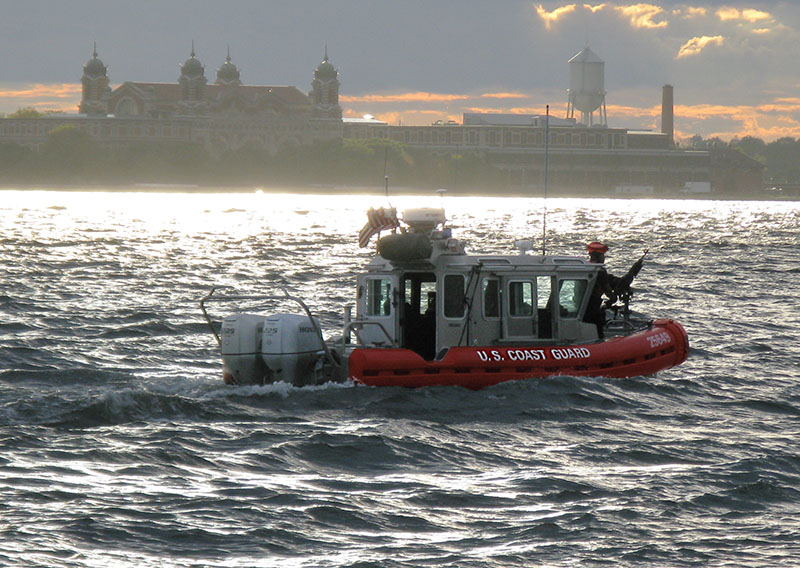A cost-benefit study found the Coast Guard would not save money by fully converting its outboard-powered small boat fleet to diesel fuel in the short term. But as a long-term acquisition strategy, moving the small boat fleet to single-fuel diesel outboards may be worth considering, the analysis found.
About 48% of the Coast Guard’s outboard power hangs on the transoms of small response boats in the 25’ to 29’ range, around 400 vessels in all by a 2014 tally, Lt. Keely Higbie of the Coast Guard Research and Development center at New London, Conn., said in a presentation at the Multi-Agency Craft Conference in Baltimore June 8.
The Coast Guard is interested in a single-fuel system to see if it can improve operational performance, efficiency and mission execution, according to project synopsis numbered 4110 in the research center’s 2016 portfolio. Single-fuel diesel would also simplify supply both domestically and for missions abroad.
Most of those outboards equip small boat stations. A full conversion from gasoline to diesel fuel would require some $83 million in new construction for fueling facilities, but yield annual cost savings of just $456,000 the analysts calculated. But a longer-range transition to diesel power could have some cost benefits, they found. During a phase-in period of replacing worn-out gas outboards with diesel, the service could realize $10.16 million in savings over six to seven years, the study found.
In the galaxy of federal spending levels, that may not seem like much, but “for the Coast Guard, that’s a lot,” Higbie said.

A 25' RBS small response boat from Coast Guard Training Center Yorktown is testing a pair of Mercury diesel outboards. Kirk Moore photo.
Meanwhile the Coast Guard is in the midst of an eight-week field testing program with Mercury Marine to test and evaluate diesel outboards.
The test platform is a 25’ RBS small response boat from the Coast Guard Training Center Yorktown in Virginia, brought up Chesapeake Bay to the Coast Guard Yard so MACC visitors could check it out.
The cooperative research and development agreement, or CRADA, with Mercury Marine will “evaluate and test the advantages, disadvantages, required technology enhancements, performance, costs, and other issues associated with diesel outboard engine technology,” according to the project description. Mercury supplied two 3.0 liter diesel outboards, while the Coast Guard Research and Development Center outfitted the boat with instrumentation to monitor power, speed, and fuel consumption.




